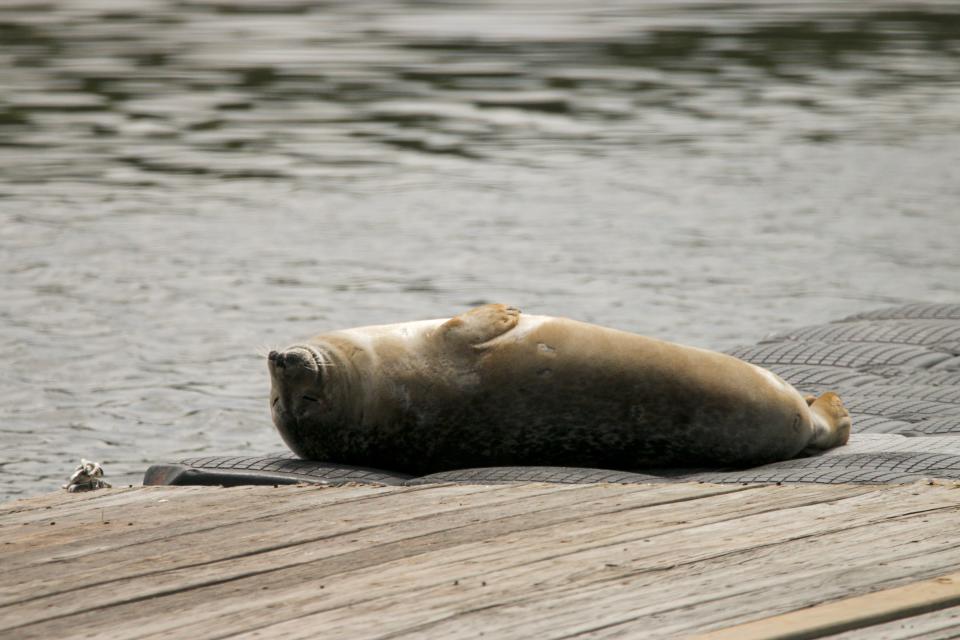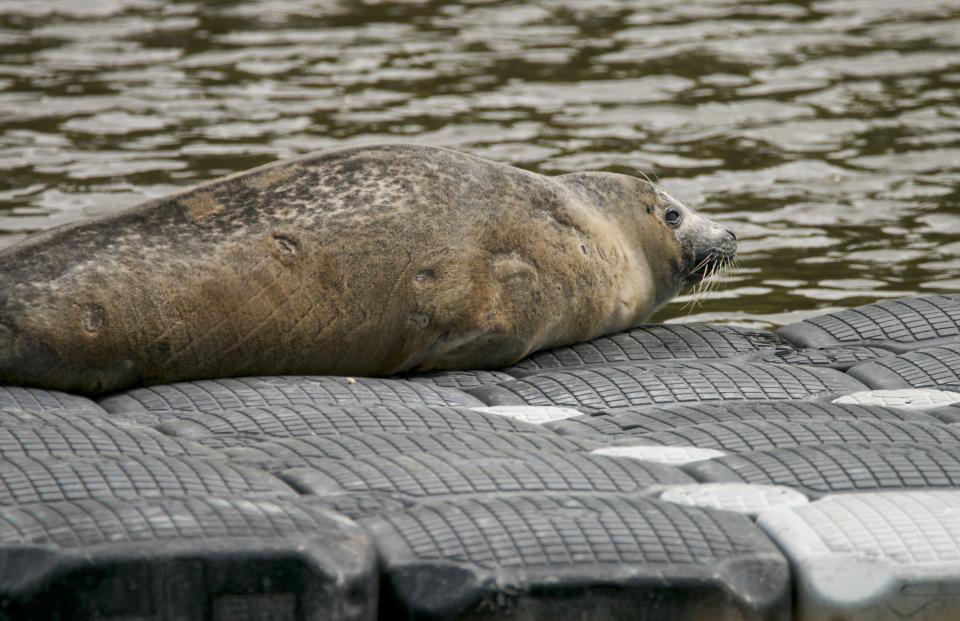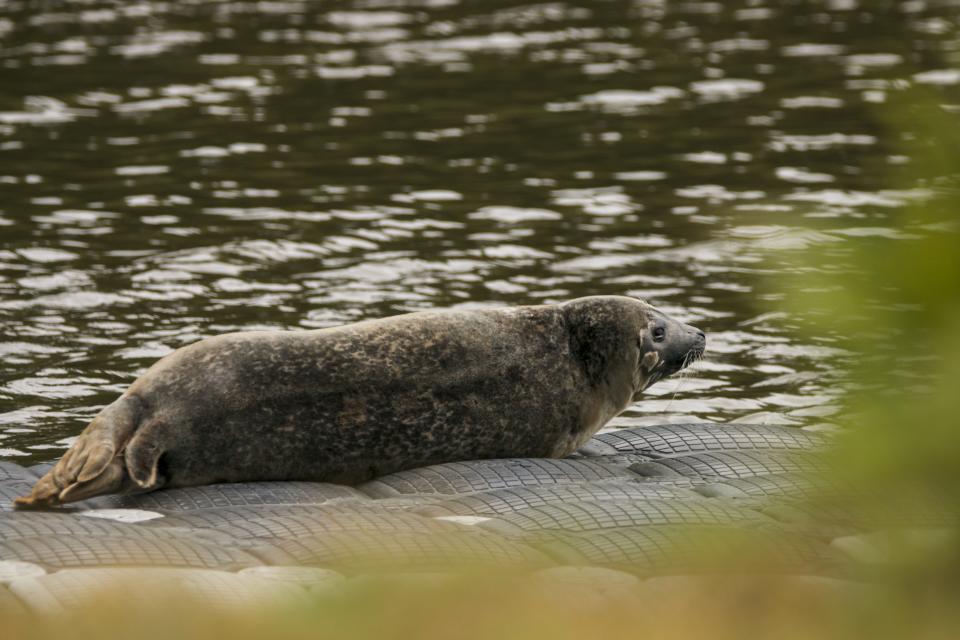What to know about harbor seal that's making a splash in Exeter, Durham
It is common for boaters to spot seals in the Gulf of Maine, but in past weeks a young harbor seal has drawn a lot of attention swimming in the Swampscott and Oyster rivers. This young marine mammal has become quite the seal-ebrity in the towns of Exeter and Durham, where it has been spotted several times, both swimming and hauled out of the water.
“It’s totally normal for seals to frequent Great Bay, but not as common for them to stick around for this length of time,” said Brian Yurasits, Seacoast Science Center’s (SSC) Marine Mammal Rescue community outreach manager. “Generally, seals avoid nearshore habitats during the summer season, likely due to the increase in boat traffic and coastal recreation. It will be interesting to see how long this seal remains around the Great Bay area as summer approaches.”

The initial sighting of this animal occurred on April 9 near Swasey Parkway in Exeter. Multiple reports were called in to the SSC Marine Mammal Rescue hotline in this area until June 1. On June 2, the seal was spotted in the Oyster River in Durham, more than 14 miles away. He was identified by color markings on his coat, as well as some healing abrasions on his body. Most recently, the seal was seen on June 9, resting happily in a nice and quiet location along the Oyster River.
“Thanks to community members who reported the seal to our Marine Mammal Rescue hotline, our team has been able to consistently monitor this animal," Yurasits said. "We can confirm that all reports have been the same male harbor seal. The seal is in good health and has been observed actively hunting, resting, and simply doing normal seal things.”
This isn’t the first time that a seal has ventured around Great Bay. In November 2022, a female harbor seal named Sam Eagle for her interesting encounter with a bald eagle, was rescued from the same location in Exeter.

Seals breathe air and the salinity of the water doesn’t impact their physiology. The locations where these seals have been reported are tidal, brackish water, meaning that they’re places where salt and fresh waters mix. Exeter is quite far up the Swampscott River, so both Sam Eagle and our recent male harbor seal traveled a long distance to reach this destination. The reasons for their adventures upriver aren’t clearly understood, but seals are known to follow their food source. The information collected by the Seacoast Science Center Marine Mammal Rescue team will help to advance our understanding of harbor seals.
Harbor seals are New Hampshire’s most common resident seal species, growing to 5-6 feet in length and weighing 180-285 pounds. Prior to the establishment of the Marine Mammal Protection Act in 1972, seal bounties in New England along with environmental stressors led to the extirpation of seals from New Hampshire’s waters. Over the past 50 years, we’ve seen the return of New England’s seal species; a notable conservation success story. Today, we are continuing to expand our understanding of local seal species, and are learning to share the shore with these locals, who play an important role in the marine ecosystem.
SSC’s Marine Mammal Rescue team operates a 24-hour hotline and is the federally-designated organization responsible for marine mammal stranding response from the Maine border to Essex, Massachusetts.

“Our goal is to continue to track this seal and monitor its condition. It's important to report any seal, alive or dead, so that valuable scientific information can be collected,” said Ashley Stokes, SSC’s director of Marine Mammal Rescue.
If you spot a seal in the Great Bay area or any marine mammal on the shore, live or dead, please keep 150 feet away and call Seacoast Science Center’s Marine Mammal Rescue hotline at 603-997-9448. Learn more at seacoastsciencecenter.org.
This article originally appeared on Portsmouth Herald: Harbor seal making a splash in Exeter, Durham, NH

